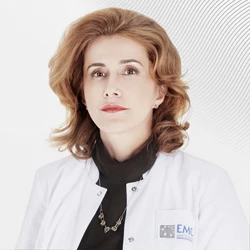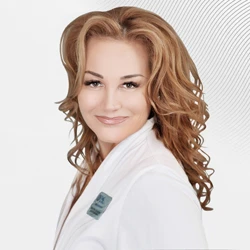The first point of the future mother's vacation program should be a visit to a gynecologist. It's really necessary! There are a number of serious contraindications for which travel is not recommended, regardless of the duration of pregnancy. These include: pulling pains in the lower abdomen and lower back, spotting from the vagina, high blood pressure, diabetes mellitus, multiple miscarriages in the anamnesis, as well as severe toxicosis and hypoxia.
You should not go on a trip if the placenta is low and covers the inner pharynx. In flight, with a pressure drop, there is a possibility of its detachment. If the cervix is slightly open and shortened, you should not take any risks either. Under the influence of pressure, for example, when the plane is in a zone of turbulence or during a strong shaking on a train, the amniotic sac may burst and premature birth will begin.
If the doctor does not find any health problems during the examination, he will provide the expectant mother with permission. This document indicates the duration of pregnancy, the absence of contraindications to a flight or train trip, and also notes that an X-ray examination is not recommended for a woman.
Choosing a transport
Aircraft. It used to be believed that it was possible to fly after 12 weeks, since solar radiation occurring at high altitude is harmful to the fetus. But recent studies have not confirmed this fact. Radiation can affect a person, but only if they fly quite often (at least 2-3 times a week). If there is no severe toxicosis, air travel is allowed up to the 12th week. The deadline at which you can board an airplane is the 35th week in the case of a single pregnancy and the 31st week in the case of multiple pregnancies.
Precautions
- The flight should not last more than 3-4 hours. The fact is that the plane is gaining a lot of altitude – 7-11 thousand meters. Due to pressure fluctuations in the air, the concentration of oxygen decreases, respectively, its supply to the blood of the expectant mother decreases. If the flight takes place for a long time, the pregnant woman may feel dizzy and feel worse in general. The fetus may also suffer from a lack of oxygen and nutrients. However, mild hypoxia that occurs during flight and does not have a serious negative effect on its formation is still not desirable.
- Be sure to wear compression stockings before flying. During the flight, all people's blood clots somewhat, but in pregnant women this is much more pronounced, so there is a possibility of developing thrombosis. Compression stockings promote blood circulation, prevent it from thickening and maintain normal blood flow in the veins. They come in different degrees of compression: mild, moderate, and severe. It is advisable to select such stockings together with a phlebologist, and you can buy them at a pharmacy. After putting on your stockings, do not rush to take them off immediately after the flight ends. It's better to do this after a while.
- In order to avoid stagnation of blood and stiffness of muscles, the expectant mother needs to move from time to time. Get up every hour and walk around the salon for 5-10 minutes. A little gymnastics is recommended for the same purpose. When you are sitting, move your feet from side to side, bend your knees and straighten them again. To make it more comfortable, if possible, take a ticket in business class: there are wider seats, aisles, you can stretch your legs. If you are flying economy class, take an aisle seat so that you can easily get up when needed.
- While buckling your seat belt, place it under your stomach so that it does not exert excessive pressure on the fetus.
- The air in the cabin is quite dry. To avoid dehydration, drink water without gas (at least 1.5 liters) in flight. Tea and juice are not suitable – tea has a diuretic effect, and concentrated juices do not quench thirst.
Train. Traveling by train, it would seem, was created for women who are in the later stages of pregnancy. After all, with a single pregnancy, you can use the services of the railway until the 38th week, and with multiple pregnancies - until the 35th. However, even here it is worth considering a number of points.
Precautions
- The trip should last no more than a day, and ideally – up to 12 hours.
- When traveling by train, do not forget to move (every hour for 5-10 minutes) and drink enough water.
- In case of severe varicose veins, be sure to wear compression stockings.
As for cars and ships, they are not contraindicated for the expectant mother. However, it should be noted that a car trip will take much longer. After all, you will need to stop every hour to stretch a little. And while traveling on a ship, seasickness can develop due to pitching. Pills against motion sickness during pregnancy are contraindicated.
On vacation
Just getting ready for the road or already being at the place of rest, do not forget to take into account some nuances that are extremely important for the expectant mother.
Climate. In the second trimester of pregnancy, a sudden climate change is not desirable. It is better to relax in your usual climatic conditions. If your health condition allows, you can go to hot countries and mountains. But places with temperatures above 30 degrees should still be avoided. Do not stay in the mountains at high altitude: the higher you are, the less oxygen there is in the air. And this can be harmful for the expectant mother and baby.
First aid. Do not forget to bring medicines that may be useful during your vacation. Everything you need must be purchased at home. Please note that in another country, the drug may have a different name and be sold only by prescription.
- Acclimatization can be manifested by headaches, colds. If you are overcooled and rhinitis has started, seawater-based sprays will be useful.
- Poisoning. In case of stomach disorders, exclude coffee, juices, flour, fried, smoked, spicy from the diet. Drink 2-3 liters of water a day. If the situation does not return to normal within three days, be sure to consult a doctor. It could be an infection.
- Allergy. It can be caused by flowering plants, a change of food.
- Bloating/flatulence. Changing your diet can cause abdominal discomfort.
- Food. To avoid digestive disorders, eat meals with cereals, as well as vegetables and fruits. Drink natural juice. Do not eat fatty or exotic foods. It is not known how your stomach will react to gastronomic experiments.
Sea and beach. In the morning it is better to go to the beach before 11 o'clock, in the afternoon – after 16 o'clock. At this time, the sun is least active, which means you don't risk getting burned.
- Apply sunscreen to your skin 15 minutes before going to the beach. Update the layer every 2 hours. Sunbathe under the awning. Do not be exposed to direct sunlight.
- Swimming is very useful. But you should not get carried away with it, dose the load, alternating it with rest. No need to swim immediately after eating. Wait two hours.
- Choose a sandy beach. You can injure your feet or trip over a pebble.
- The optimal water temperature during bathing is at least 22 degrees. If the water is cold, it's better not to even rinse your feet in it – you can get overcooled.
Clothes. Choose things made of natural fabrics, wear sandals or flip-flops. If you are not ready to give up high-heeled shoes altogether, let the heel be no higher than 3-4 cm. When choosing a swimsuit, pay attention to tango models, panty shorts and swimwear for pregnant women. It's better to give up thongs now. They can cause pathogenic flora to enter the vagina from the intestine.
Guided tours.If you want to go on a bus tour, you can do it. But the move should not take more than 5-6 hours, so as not to tire you too much. The trip should not involve anything extreme, such as climbing mountains. It can be a visit to a museum or a sightseeing tour of the city. Have a snack every 3 hours while traveling. Bring fruits, crackers, and nuts with you.
Was this information helpful?
Questions and answers
How can you tell true contractions from false ones during pregnancy?
Only a doctor can tell true contractions from false ones after an examination and additional tests.
.webp)







.webp)



.webp)



.webp)
